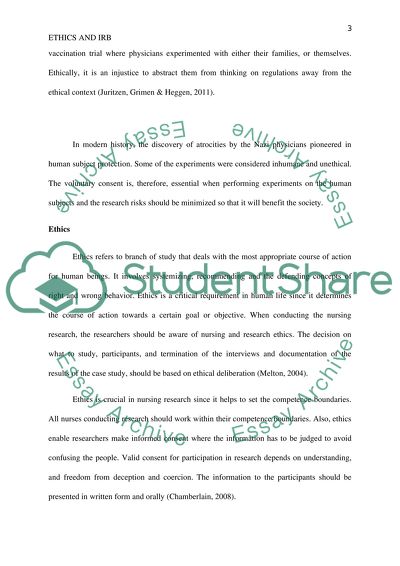Cite this document
(“Ethics and IRB Essay Example | Topics and Well Written Essays - 1250 words”, n.d.)
Retrieved de https://studentshare.org/nursing/1467555-ethics-irb-essay
Retrieved de https://studentshare.org/nursing/1467555-ethics-irb-essay
(Ethics and IRB Essay Example | Topics and Well Written Essays - 1250 Words)
https://studentshare.org/nursing/1467555-ethics-irb-essay.
https://studentshare.org/nursing/1467555-ethics-irb-essay.
“Ethics and IRB Essay Example | Topics and Well Written Essays - 1250 Words”, n.d. https://studentshare.org/nursing/1467555-ethics-irb-essay.


